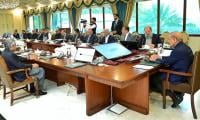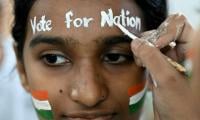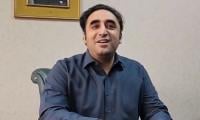For a party that is coming into power at the centre for the first time, the PTI’s federal cabinet certainly does contain a lot of familiar names. Of the 21-member cabinet, 12 had previously served under the rule of Gen Pervez Musharraf while five were part of the last PPP government. While this would tend to undercut the PTI’s claim of ushering in a Naya Pakistan, a case could also be made that such ‘electables’ are needed for their experience in navigating the corridors of power, particularly entrenched elements like the civil service. There are no surprises in the identities of those holding the top posts. Shah Mehmood Qureshi is once again serving as foreign minister, Asad Umar is in charge of finance and Fawad Chaudhry is the new information minister. The biggest surprise is that Prime Minister Imran Khan has decided to keep the interior ministry portfolio for himself. The PTI had quite rightly hounded Nawaz Sharif for not appointing a permanent foreign minister but it has now done the same for the top law-enforcement official in the country. The interior minister is in charge of coordinating all the security agencies and is the first person to respond after militant attacks. It is important that a permanent minister be found rather than have an ad-hoc figure – who will already have a lot on his plate – running affairs. Other appointments, such as that of environmentalist Amin Aslam as adviser on climate change and Dr Ishrat Husain as adviser on institutional reforms and austerity are to be lauded as signs that the PTI is serious about delivering on its promises.
While it is best to take a wait-and-see approach to the federal cabinet, the choice of Usman Buzdar as the Punjab chief minister has led to immediate condemnation. Buzdar has been accused of paying blood money to avoid punishment for an incident where he was charged with murder after six men were killed in a firing incident during the 1997 elections. For such a person to now head the most populous province in the country is not in keeping with the promise of the PTI to break from the bad habits of the past. Buzdar himself is a relatively new entrant to the PTI and his appointment is hardly likely to be welcomed by the rank-and-file of the party. The PTI is still only the second-largest party in the Punjab government and a consensus chief minister might have been the better option to ensure the stability of its coalition. If the party is going to deliver on its promises in the province, it will need people of the highest calibre and with its most important appointment the PTI has cast some doubt on whether it will be able to achieve that.
Representational image. —APP/FileIf you live in Karachi, or anywhere else in Pakistan for that matter, you have...
Screengrab shows X services down in Pakistan. — Geo.tvIt has been two months since social media platform X has been...
Health experts estimate an 8.0 per cent and 5.0 per cent increase in hepatitis B and C related deaths, respectively,...
PTI has managed to carve out a tough-to-defeat position in Pakistan’s politics and polity both
Rain on Sunday alone led to the deaths of 12 people – two in Balochistan, six in Khyber Pakhtunkhwa and four in Punjab
India seems to be following Israel model of carrying out assassinations on foreign soil of people it sees as a threat...







